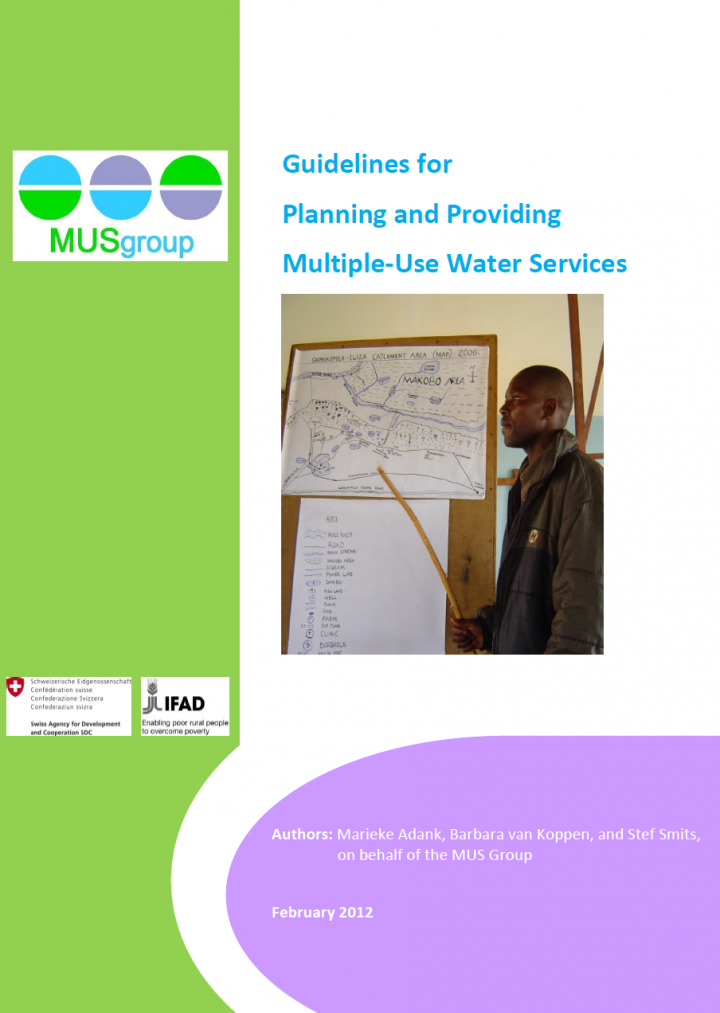Guidelines for Planning and Providing Multiple-Use Water Services Adank, M., van Koppen, B. & Smits, S. (2012)
The multiple-use water services (MUS) approach is defined as an approach to water services that
considers the multiple needs of (poor) water users, who take water from a number of sources, and
communities’ own priorities as the starting point for investments in new infrastructure,
management arrangements, the rehabilitation of existing infrastructure, or for improvements in
management and governance (Van Koppen, 2006).
MUS started with the growing recognition in both the domestic and
irrigation sectors that schemes designed for one single-use, whether domestic, irrigation, or
livestock, are often used for additional purposes, and become de facto multiple-use schemes.
Economic analysis found that relatively low incremental investments give disproportionately
high benefits, with high benefit-cost ratios as an end result (WI, IRC, IWMI, 2007). Furthermore,
providing multiple-use water services can lead to more sustainable service delivery as it avoids
damage from unplanned uses, and better accommodates people’s water needs and priorities,
increasing their ability and interest in sustaining services and recovering costs. By using and re-using
multiple water sources, both water resource efficiency and livelihood resilience can be enhanced.
Last but not least, MUS matches the - often informal - realities on the ground, in which rural and
peri-urban communities use and re-use a number of different sources for a variety of uses to
concurrently meet a range of both domestic and productive water needs.
Bibliographic information
Adank, M., van Koppen, B. & Smits, S. (2012). Guidelines for Planning and Providing Multiple-Use Water Services IRC International Water and Sanitation Centre and International Water Management Institute
Filter / Tags
Politicians and local decision makersPractitionersGuidelines and manualsEnglish
Downloads
Guidelines for Planning and Providing Multiple-Use Water Services
Type: application/pdf
Size: 1.97 MB

